 "/>
"/>
 "/>
"/>

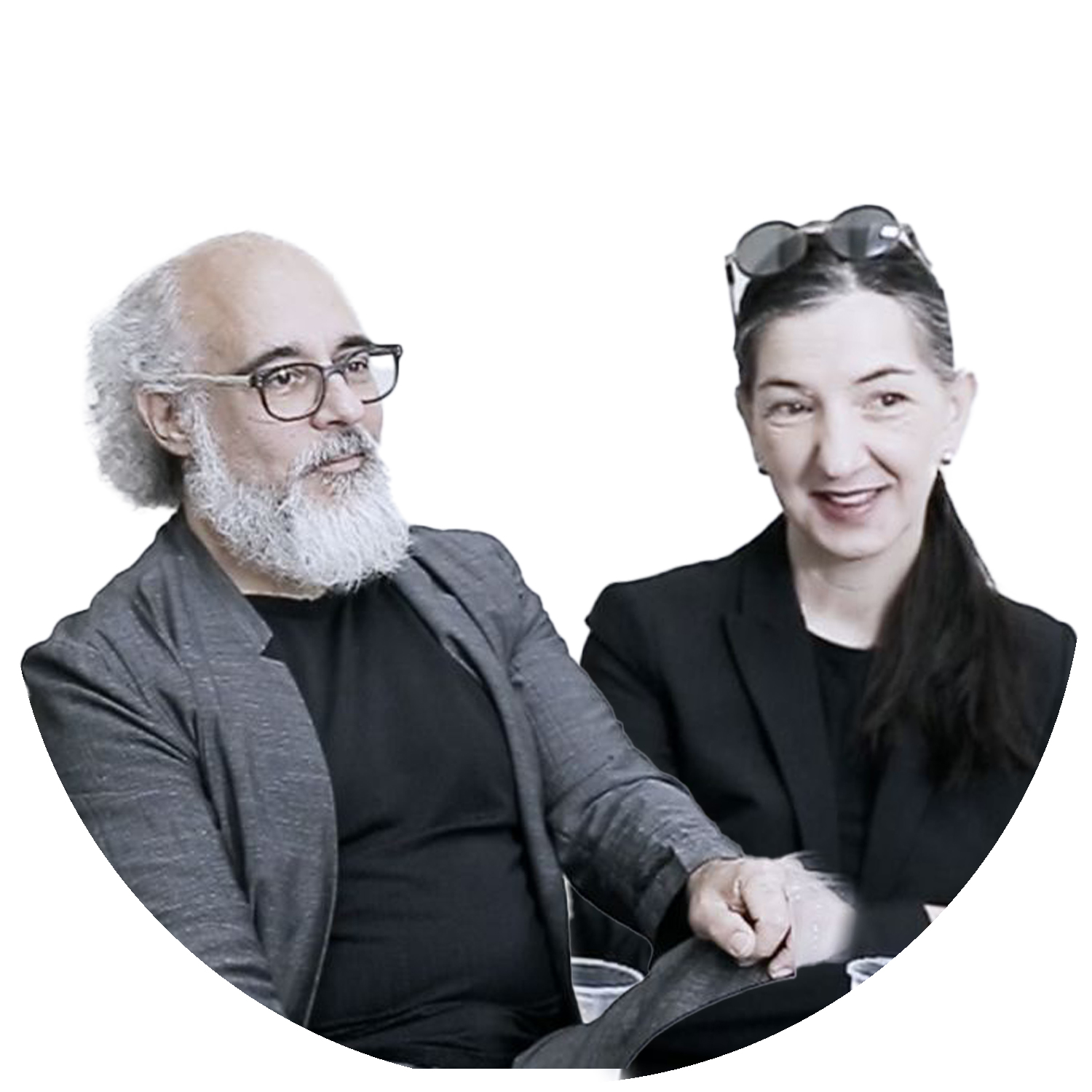
Mauricio Villarreal
PLACE 创始合伙人、首席设计师
Zeljka Carol Kekez
PLACE 创始合伙人、首席设计师
我们是做什么的?我们为什么要从事景观设计实践?我们对创意的热情和追求源于什么?我们为什么创立这个事务所?我们想要实现什么?通过这些问题我们得出了一个核心思想:我们创造场所——人们享受的场所,所以我们的事务所就应该叫PLACE。这是一个非常民主和令人兴奋的过程。
—Mauricio Villarreal
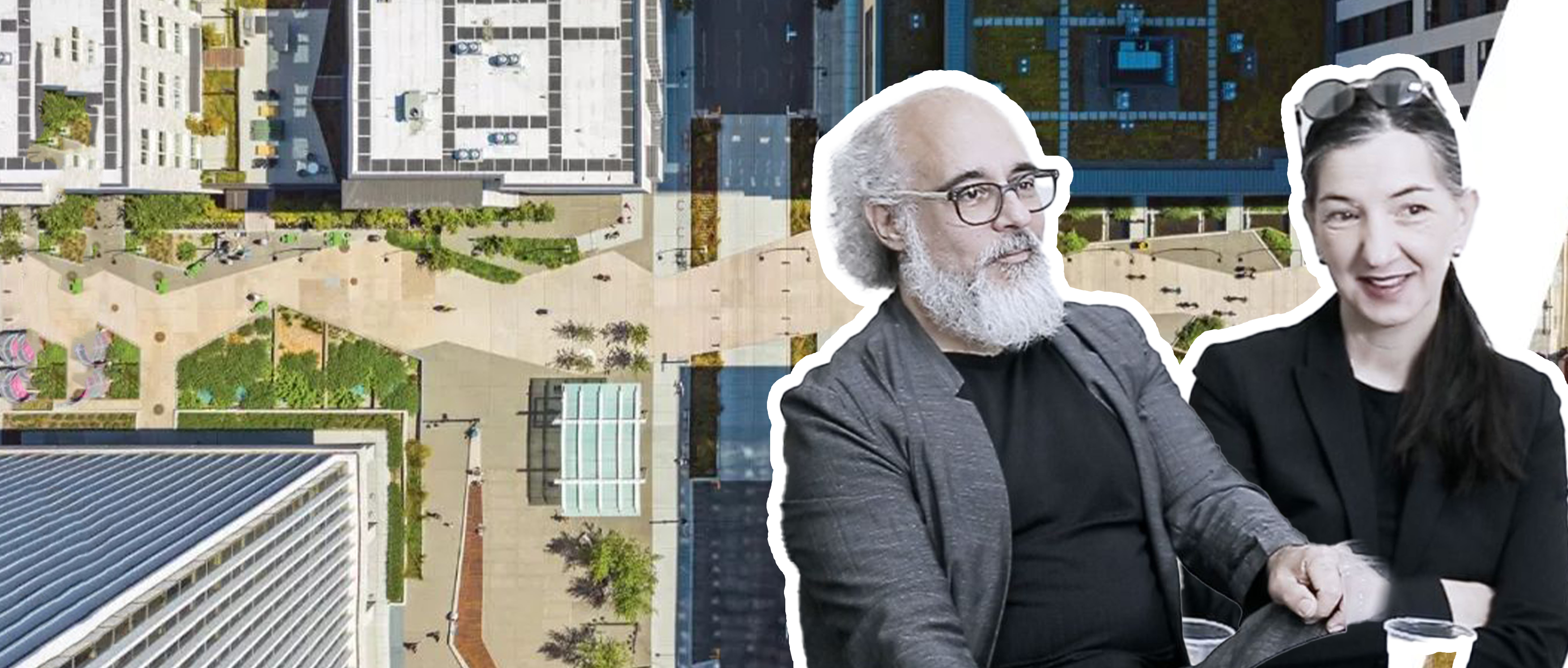
01 / People
本期人物
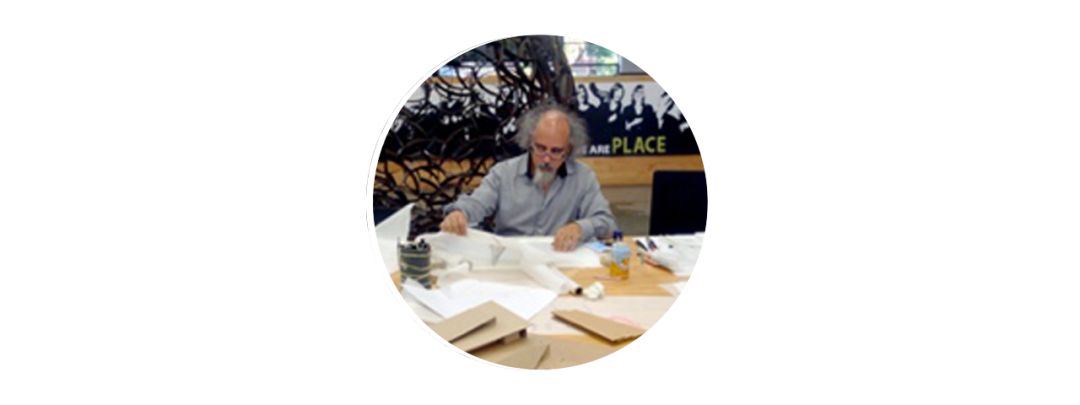
Mauricio Villarreal
PLACE 创始合伙人、首席设计师
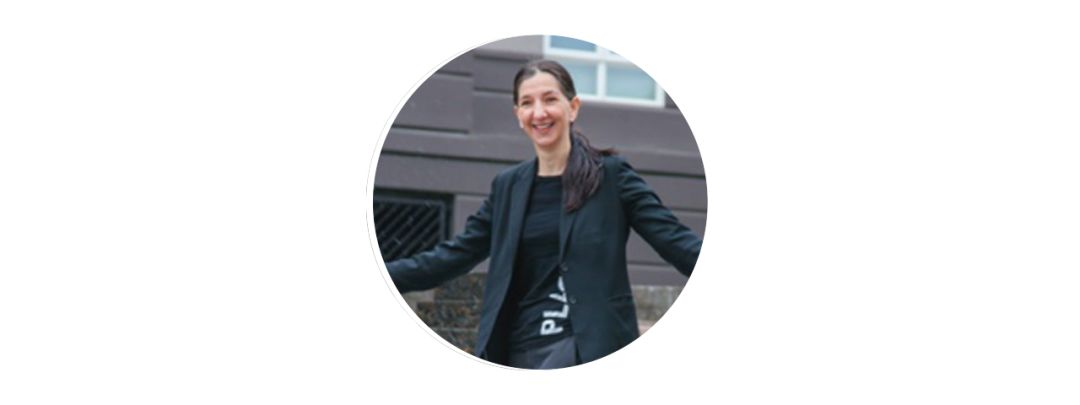
Zeljka Carol Kekez
PLACE 创始合伙人、首席设计师
02 / PlACE
公司缘起和创业初心
█ 我们注意到PLACE的事务所里面有几台摩托车,这是为什么?
I noticed that you have some motorcycles in the studio. Why?
M:有好几个原因。一个是我本人喜欢骑摩托,而且我从十五岁就开始骑了。我一般会去赛道骑或是在波特兰到华盛顿一段很美的路上骑,我还特别喜欢疾驰和在摩托上摆各种姿势,这是我的一种释放能量的方式。另外一个原因是,在PLACE,不论我们四面周遭的物品还是我们所做的事情,都是经过优秀的设计和匠心的创作过程而产生的,比如杯子、摩托车、咖啡壶以及场所。我们身边所有事物的背后都隐含着某种意图、目的和思考。
同样,制作精美的摩托车从某种意义上说,是一台功能性的机器。但是从另一种角度来看,也是工业美学的艺术品,是设计师经过缜密的思考再由工匠将它亲手打造的,因此是人创造了美。摩托车在我们事务所既是一种工具又是一种艺术的表现形式。我们喜欢像这样被有趣的想法、卓越的设计、优秀的人和绝妙的灵感包围。
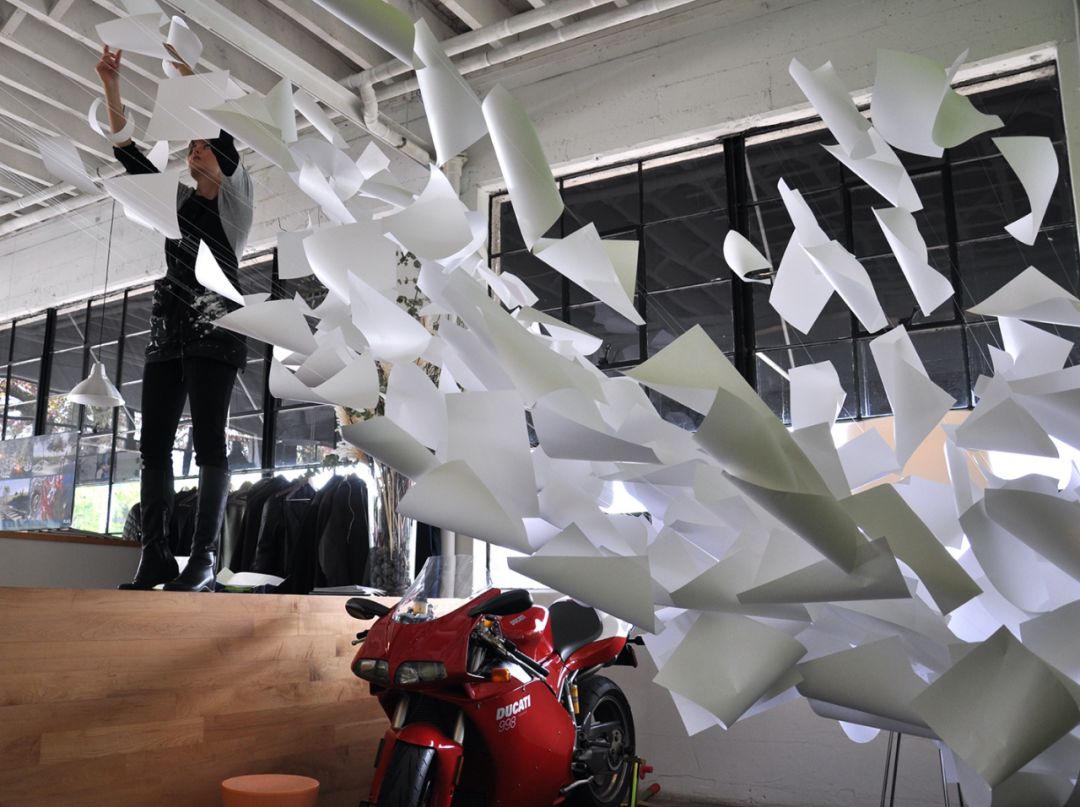
M:There are many reasons, I love riding motorcycles. It is something that I've done since I was 15 years old. A way to release energy. I love going fast and I love playing on the motorcycles. I take them to the racetrack or drive them across beautiful landscapes from Portland to Washington DC.
The other aspect is that everything we do and everything that is around us at PLACE is based on good design and on the creation of beautiful things - the creation of a cup, creation of a motorcycle, creation of a coffee pot, creations of a place. Everything that surrounds us, has an intent, a purpose and a thought behind it. Similarly, the motorcycles are beautifully made. So in one way, they're utilitarian, a piece of machine. But in another way, motorcycles are beautiful pieces of art. Designers thought about it and craftsmen built it by hand. Somebody created beauty. Motorcycles are in our studio because, in one way, they're just a tool and in another way, they're artistic expressions. We love to be surrounding with good ideas, good design, good people, and good inspirations.
█ 为什么你们给事务所命名为“PLACE”?
Why did you name the studio as “PLACE”?
M:十多年前我们在筹备成立事务所的时候,当时的四个合伙人和两个员工为了想设计事务所的名字思考了很长时间。最开始,我说:“可以叫Villarreal, 但是估计没人知道怎么念。”(开个玩笑啦(笑)),但我们又不想以我们的姓氏首字母来命名作品,所以我们就自问:我们是做什么的?我们为什么要从事景观设计实践?我们对创意的热情和追求源于什么?我们为什么创立这个事务所?我们想要实现什么?通过这些问题我们得出了一个核心思想:我们创造空间——人们享受的空间,所以我们的事务所就应该叫PLACE。这是一个非常民主和令人兴奋的过程。
说真的,合伙人和我们两个员工讨论过,说我们是不是应该叫Earth,Wind或者Fire?还是应该叫 Water或者 Green(笑),因为水是维系我们日常生活的一个很重要的部分。我们很多对话还围绕着我们该怎样、该如何来保护我们的自然资源。我们不仅应该创造让人们享受的环境,还应该创造那些可以反映出人们的、社区的以及人类群体想要创造出美好有趣事物的愿景的环境。
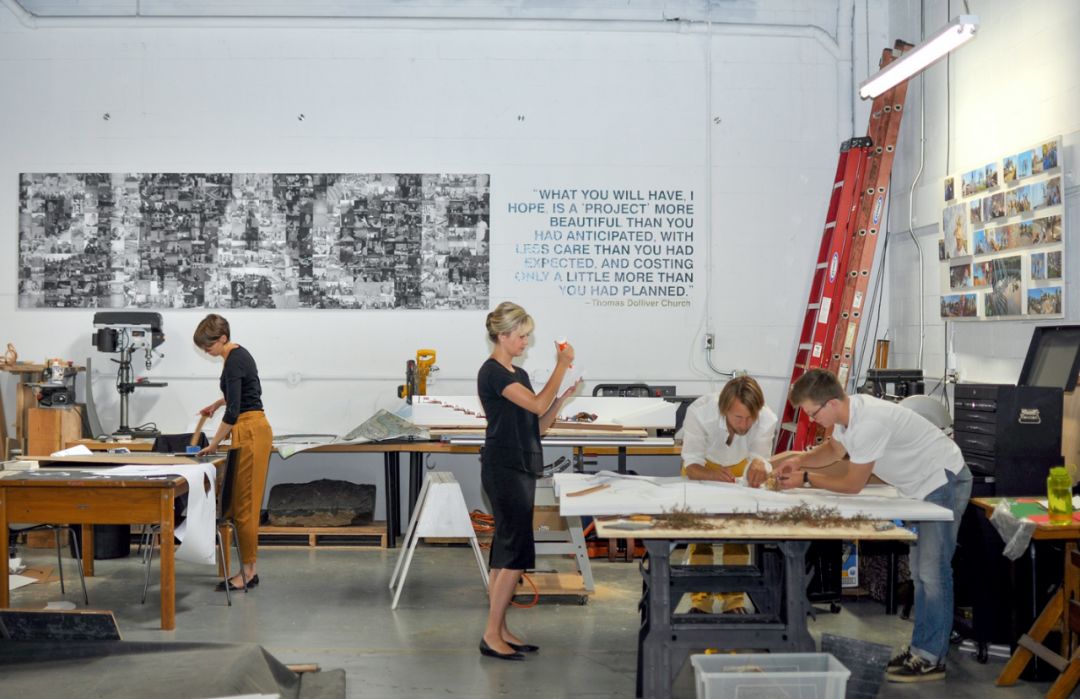
M:When we started the studio in 2010, we wondered about the studio name. The four partners and two employees that we had at that point literally sat down around a table and spent a week exploring ideas. At first, we said ‘it could be called Villarreal, but nobody would be able to pronounce it.’ No, I didn't really say that (laughs). But we didn't really want the practice to be named after the letters of our last names -J K L N B-something in that order. So we focused on what is it that we do? Why is it that we practice landscape architecture? What is at the core of our passion and desire to engage in a creative process? Why are we creating this studio? What is it that we want to achieve? And then the conversation leads us to the fundamental idea - we create places - places for people to enjoy. Our name should be PLACE. It was a very democratic and exciting process.
Literally, the partners and our two employees discussed if the name should be Earth, Wind, or Fire? Should it be Water and Green (Laugh)? Water is such a big part of our lives and a lot of conversations focused on what and how we do our work to protect natural resources. We create environments for people to enjoy, environments that reflect people's goals, community goals, and reflect our collective desires to create something beautiful and interesting.
█ PLACE 在新加坡、北京、西雅图和波哥达等地都有分部。你们是如何管理不同的事务所?各个事务所之间又是怎么协作的?
PLACE has branch offices in Singapore, Beijing, Seattle, and Bogota. How can you manage the different studios? How do those studios coordinate?
M:连接我们各个事务所的重要元素是因共同的理想而建立的友谊。我们设计事务所之间的合作不是基于单纯的商业模式,而是在友谊的基础之上对于创意美学的追求。事实上,在决定开这些事务所之前,领导这些事务所的每个人都是我们认识的同事,他们都在波特兰总部工作过也都熟知PLACE的文化。他们理解我们的工作方式并且认同我们的设计过程。但由于种种原因,这些同事需要在不同的地方工作,他们联系我们说:“我们希望能继续合作”,我们回复“我们也很想你们,不如我们在你的所在地也成立一个办公室?”。就像和我们成功合作的董事Phoebe Bogert一样,她在波特兰工作了几年后搬去西雅图与家人同住,后来我们就决定在西雅图成立办公室。
所以这些与我们合作的伙伴都理解PLACE的文化和目标,并且我们在不同的场合下都有过合作。因此我们不会通过发布广告招聘来开新的事务所,我们更愿意在现有的友谊基础上发展。事务所间的日常工作协同主要集中在沟通交流上,Carol也一直强调跨公司信息的公开透明性和即时性。另外事务所的所有事情都是即时处理的,这也让我们有效的保持了对工作的热情,尽管有时也会不可避免地遇到挑战。
M:The important element about our studio networks are friendships. Our studio in Singapore, studio in Beijing or Seattle, were not rooted in a business model, but in a friendship model. So what does that mean? The people that lead each one of these studios are colleagues we knew before we decided to open the studio. They have worked in Portland and know PLACE culture. They understand how we work and they believe in how we approach design. For a variety of reasons, these colleagues simply opted to practice in different geographic locations. They approached us with: “We want to continue to work together,” and we said: “We miss you too. Why don't we open a studio in Singapore or Seattle?” as we have accomplished in a collaboration with Phoebe Bogert, Principal. She worked in Portland for several years before moving to Seattle to be with her family. That's a very important part of the story. The people we partner with, know us and have worked with us on numerous occasions. They understand the studio culture and the goals of PLACE. We don’t go around the work with an advertisement to open a new studio. We prefer to build on existing friendships. Beyond that, daily work focuses on communication. One of the things that Carol stresses all the time is transparency and instant communications across studios. Anything in the studio is dealt with in real-time. That has allowed us to be effective at maintaining enthusiasm and excitement for the work. No question about it, there are challenges sometimes.
█ 所有的合伙人在创立PLACE之前都有着非常丰富的工作经验,是什么契机让你们成立自己的事务所?
The Principals have rich working experiences before starting PLACE. What was the motivation to start your own studio?
M:这样我就有地方安置我所有的摩托车了。(笑)
C:其实有三个原因。第一,从事设计是我们所有工作的核心,包括设计事务所本身。在物质空间层面上讲,我们的设计事务所其实是我们与相关社群的共享资源。其次,以这个核心为基础,还有其它两个层面:一是与学术界的联系,我们以此为据点在本地和全球范围内开展教学实践;另一个是我们在事务所的模型室可以制作包括手工模型,甚至是1:1的模型,这也是我们的特色之一。
M:我们对于设计实践和事务所空间的思考应该是别具一格的,因为我们几乎是在“最佳时机”开始的实践。那是2010年,正是美国经济衰退期(笑)。当时所有人都觉得我们根本是疯了,我们有着很好的工作,却在众多景观事务所因为没有项目而裁员的时候选择开始新的设计实践。我们希望提供与众不同的服务,并在每个项目中投注精力去塑造公共关系,去创造一种社群意识。
M:So, I can park all my motorcycles (Laugh).
C:It was really three things. First, the design at the center of everything we do, including the studio itself and the way it looks.
The physical space. Our studio is a resource for us and for our community. Then, from that physical center, two other things. One is the connection to academia; we teach locally and globally. Finally, it is the studio’s workshop with a hands-on approach to design including a 1:1 scale model, which is very unique.
M:We think differently about our studio space and our practice. We started our practice at the best time possible; in 2010, in the midst of the US recession (Laugh). Everybody thought that we were completely crazy since we had good jobs and yet decided to start a new practice while LA firms were laying off staff and had no work. However, we desired to provide services differently; building on relationships and creating a sense of community with a lot of attention to each project.
█ 事务所开始运作之后,如何实现好的团队合作和公司发展?
How did you run the studio and the business?
C:从专业设计和商业模式的角度来看,我都觉得这次创业是一次很好的尝试。我们想通过发掘传统文化遗产的魅力来进行景观设计实践。Mauricio先生来自哥伦比亚,而我来自克罗地亚,我们觉得如果只在波特兰本地实践范围就太小了,所以我们就决定与世界各地的朋友和同行建立联系。最初我们都对采用这种国际化实践的可能性抱有好奇和怀疑,我们不敢想象我们能在欧洲、拉丁美洲和亚洲有项目。所以很感谢我们所有的同事和客户愿意信任我们并给我们这些机会,而我们也致力于稳固我们之间关系。因此当我们在做这些项目的时候,我们将其视为自己的一种延伸,我们希望无论项目是何种规模、尺度或是位于何处,我们都能确保做到最好。
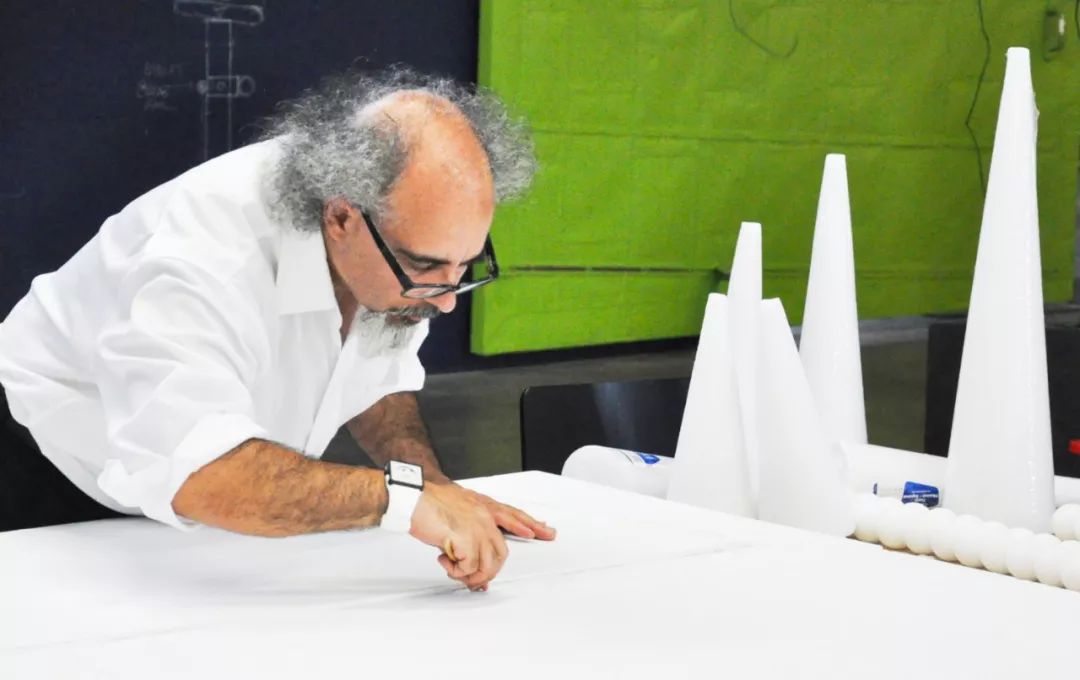
C:It was a great idea from the professional design perspective as well as the business model perspective. We wanted to practice landscape architecture by celebrating our cultural heritage. Mauricio is from Colombia, and I am from Croatia. Practicing in Portland felt exclusively small. We wanted to reach out to our friends and professional colleagues around the world. Initially, we were curious about possibilities or experimenting with international practice. We couldn't possibly dream that we would have projects in Europe, Latin American, and Asia. Thanks to all of our colleagues and our clients who have given us the vote of confidence and gave us a try. We are committed to these relationships. So, when we work on projects, they are an extension of us, we want to make sure we give it our best every single time, regardless of a scale, scope, or location.
03 / Design Philosophy
设计理念
█ PLACE的设计理念是把传统景观设计实践与尖端技术和前沿创意相结合,那么你们是如何诠释这种关系的?
Your design philosophy is about connecting the cutting-edge ideas and technology with the traditional landscape architecture practice. How do you define the cutting edge and traditional landscape practice?
M:在创立PLACE之初,我们的脑海中就已经有了一些既定目标。首先,设计是我们实践中的核心要素,同时,不论是与艺术家合作还是我们自己创作作品,艺术都对我们有着很大的启发和影响。但有时候景观设计师并不被认为是艺术创作中不可或缺的一部分,在项目协作时客户可能会说:“太好了,那我们就直接请一个艺术家来做吧” ,尽管这样,我们还是更倾向通过合作,通过与跨界团队相互交流想法来完成它。同理,合作与教学对我们也有着重要的意义。与社群的合作中让我们有机会了解当下境况,了解什么是对社会和世界至关重要的事情,这一点非常关键。同时也给了我们一个探索自我和促成新体验的机会。在学术方面,我认为了解最前沿的事物和思想是很重要的。在大学教书时,与你打交道的都是20多岁的年轻人,他们用完全不同的方式思考这个世界,这也为我们打开了新的视角,而不是一遍遍的用同一种过时的方法来进行实践。
我从事景观设计已经有31年了,我经常以近乎固定的方式去拿笔和画画。我时常想,如果换一种方式会怎样呢?在与学生一起探索实验的过程中,我发现他们没有预先的判断也不会有特定的期待,因此会让我们用一种新的方式去思考。这种合作为我们带来了积极的影响并促进了我们与社区之间的互动,同时也改善了我们工作和设计的方法。
传统意义上,人们会倾向在一个安静的空间享受时光,那里要有一个可以坐的地方,旁边还要有一棵漂亮的树来遮荫。这很好理解,我们可以将开放空间解构成一个长椅和一棵树,或者一个长凳和一把阳伞,这些表达了开放空间的氛围是放松或休闲的。从这里开始,景观设计师的设计实践就可以朝多个方向展开:长椅可以是一块质朴的木头,可以是一块精美的大理石,也可以是一个非常复杂的设计元素;遮阳物可以是一棵树或是一个非常复杂的构架。但设计的本质始终是一致的:人们就是喜欢待在户外,喜欢舒适,这一点不必过度解读。但我们可以根据项目的不同目标来选取相应的元素并加强设计的存在感。
C:为了强调设计的过程,我们在事务所设立了模型室,这样我们就可以在不同比例下用多种材料来进行实践,甚至是制作1:1比例的设计模型都没问题。而且工作坊距离每个人的办公电脑只有2米,我们可以迅速地将电脑上的数字模型转化成手工模型。我们时不时还会在事务所和学生们一起探索新想法。
当你走进我们事务所的时候会发现我们是没有前台接待的,那些陈列在展厅中的艺术品会代替前台“欢迎”你。而且任何附近社区的居民或者街上的行人都可以走进来欣赏我们展示的艺术品,它们会不时进行更新和替换,这也是我们融合社会传统与现代元素来启发我们的日常工作的一种途径。PLACE的实践不仅是让景观设计师们坐在电脑后面进行项目设计,更是一种通过跨界融合来启发创意的过程,而且我们的工作过程需要唤醒并调动所有感官,而不仅仅只是关注于商务。
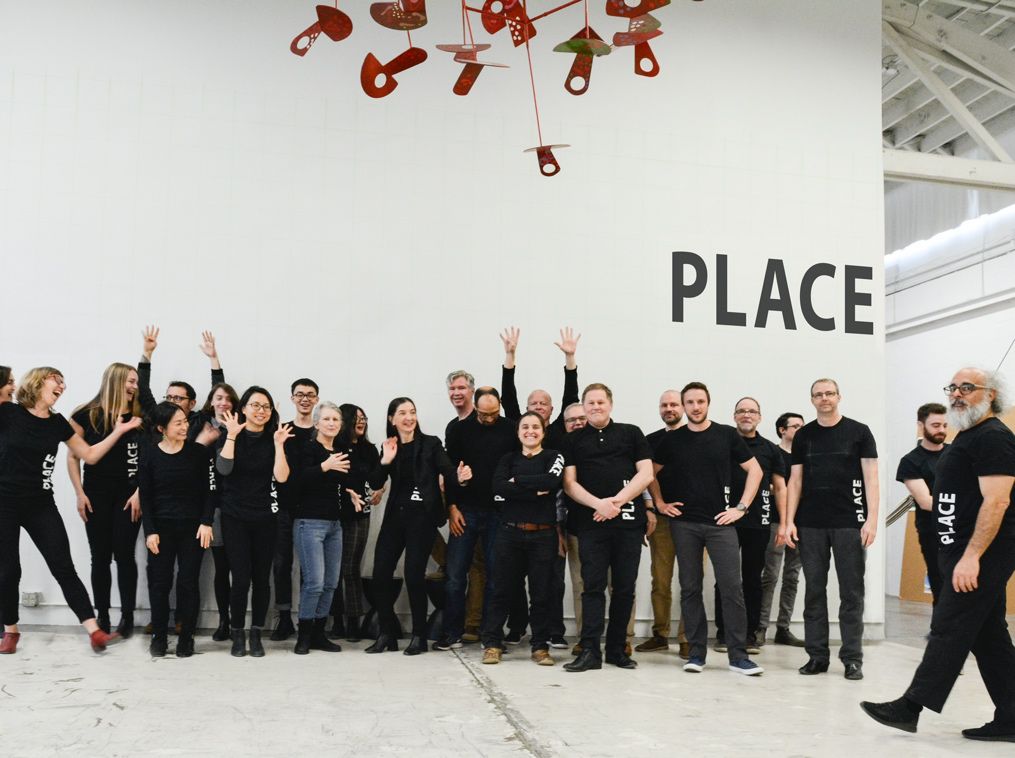
Group Photo
M:When we started PLACE, we had a couple of goals in mind. The design was an integral element at the core of our practice. Art was also a big influence. Art, either by collaborating with artists or developing our own creations. At times, landscape architects are not considered integral to art-making. Despite the collaborative process, clients may say: “That's great. Let's hire an artist.” We prefer a collaborative process, exchanging great ideas with interdisciplinary teams. Similarly, teaching is very important to us. Working with the community allows us to remain current and understand what is important to society. Seeing what's happening around us in the world is paramount, providing us opportunities to offer a personal interpretation and facilitate a new experience. The academia, I think, is a great influence on understanding what's cutting edge. When teaching at a university you're working with young people. 23, 24, 25-year-old young students that think about the world in a completely different way. It opens our eyes to new perspectives rather than practicing in the same old way, over and over.
I've been doing landscape architecture for 31 years now. I realize that I often draw and take a pencil in the same way. However, what if I take a pencil in a new way? What would that mean? So, students are great for experimenting with us because they make us think in a new way. They have no judgment and no expectations. In return, our collaboration provides us with new influences and engagement with the community. Collective input makes a change in our work and approach to design.
Traditionally, people wanted a place to sit, a little bit of shade by a nice tree, and a calm space to enjoy. It was very simple. One could distill an open space to a bench and a tree. Or a bench and an umbrella. The idea of claiming open space for relaxing or taking a break. From there, landscape architects may take practice in numerous directions. The bench can be a simple piece of wood. It can be a beautiful piece of marble. It can be a very complex design element. The shade can be just a tree or it can be a very complex structure. The essence of it is always the same. I think people just love to be outside; love to be comfortable. It doesn't have to be complicated. However, we can take essential elements and amplify design depending on the goals of the project.
C:To amplify the design process, we have set up our studio with the workshop where we can build working models to 1:1 scale design features. The workshop allows us to work across a variety of scales and materials. Our team members can walk five feet away from their computers and quickly translate digital ideas into a built form. We also use the studio to explore new ideas with the students.
When you first walk into our studio, there is no reception to greet you. Instead, you are immediately greeted by artwork displayed in our Galeria. So anyone from the community, anybody from a street can walk in and enjoy the artwork that it's continuously evolving and changing. It is also how we blend the traditional and contemporary aspects of society to inform and inspire our daily lives. It is not just having a number of landscape architects sitting behind the computers and working on projects. It is about blending disciplines together to celebrate and inspire the creative process. Our studio practice requires awakening and engaging all the senses rather than just focusing on a business of landscape architecture.
█ 您能否与我们分享您对于PLACE专注于“人类”,“地球”和“和平”的见解?
Can you share with us your insights into PLACE’s focus on People, Planet and Peace?
C:可以说我们的实践就是为人们提供场所,因此公司命名为PLACE – 也是旨在为人们创造美好的场所。我们创造的第一个场所就是我们的事务所和我们的企业文化。然后我们希望通过与各种各样的人建立联系来复制和传达它。我们最关心的就是我们的事务所,我们的员工和我们的家庭。如果一切进展顺利,我们可以将关系和联系扩展到我们的客户。我们努力建立友谊,在北京、新加坡、东京和波哥达的合作网络都是建立在那些我们认识并且有着数十年交情和专业合作的朋友上。如果项目机会出现,无论在世界上的哪个角落,我们都会和我们的朋友们取得联系并一起参与其中,如果所有人都达成共识愿意开展这个项目,那将是一件很棒的事情。有时几年过去了我们才等到下一次机会,但是对我们来说时间仿佛没有流逝一样。因为我们没有预期,所以只有欢乐。我们坚信我们可以将学术界和学生联系在一起并回馈社区,因此我们大部分的项目都是公共项目,我们很享受和客户乃至全世界范围的人们合作。
C:Our practice is about placemaking for people. The company name is PLACE - it’s about making great places for people. One of the first places we created was our own studio and its culture. Then we desired to replicate it by connecting people. Our studio, our people, and our families are our first priority. If that is going well, then we may extend the relationships and connections to our clients. We strive to create friendships. The networks in Beijing, Singapore, Tokyo, or Bogota are with people we have known and enjoyed personally and professionally for decades. If the project opportunity comes up in a corner of the world, we reach out to our friends to play together. If agreeable to all - fabulous. Sometimes years pass prior to a next opportunity and yet it's just like no time has passed. No expectations; just fun. We strongly believe in connecting the world of academia, students, and giving back to the community. The majority of our work is for public projects. We enjoy partnering with clients and engaging people worldwide.
█ PLACE事务所的室内设置、模型和草图给我们留下了深刻的印象,和常见的事务所非常的不同。正如我们研讨的,在当前电脑渲染泛滥的趋势下,有时学生只是用电脑来绘制精美的图纸但却从未思考过空间的真实样貌。
We were impressed by the models, sketches, the studio settings. It's very different from other firms. And we were talking about the current trend of using computer renderings. Sometimes students are just using the computer to make pretty images but they never think about how the place really looks like.
M:数字技术确实有可能带来问题。今天的学生们几乎个个都是电脑奇才,他们可以画出非常漂亮的图纸,但是也可能会沉溺在这些工具中。我们常常提醒他们始终要保持对创意过程、客户和用户的重视。诚然,好看的图纸可以描绘出一个乌托邦,做图过程中的某些环节可能对于创造梦想或愿景至关重要。读书其实是一种做梦的过程,这也是读书的美妙之处。在这个过程中没有客户、没有预算、没有时间表,由此带来的开放性是非常有趣的,对锻炼大脑也是至关重要的。然而,在学校也是进行探索的绝佳时机,在这个过程中你也需要意识到作为景观设计师是有比画出好看的图更大的责任的。这也是好设计之所以广受好评的原因——一种对人类行为、环境、自然和附近周遭的理解,以及这些要素是如何共同创造出对每个人都意义非凡的一个瞬间。这个场所是为一个人服务?或是两个、四个人?一百个或者一千个人?是为今天,为明天还是一百年后的今天?这就是景观设计的美,我们被赋予了为子孙后代创造隽永场所的特权。这个场所也许我的孩子、甚至孩子的孩子依然会使用,会享受——公共开放空间将会变成公众元素以及城市的一部分、一个地点的某种象征、和一群人的某种象征。
C:享有在本地和全球开展不同尺度项目的设计机会也为我们带来了一种对人类、历史和文化及其对环境的影响的理解,特别是身处我们现在生活的时代。气候变化是一个迫在眉睫的现实问题,作为一个景观设计师我们必须主动承担领军者的角色,相互学习,并站在推进这些相关方面社会进步的最前线。
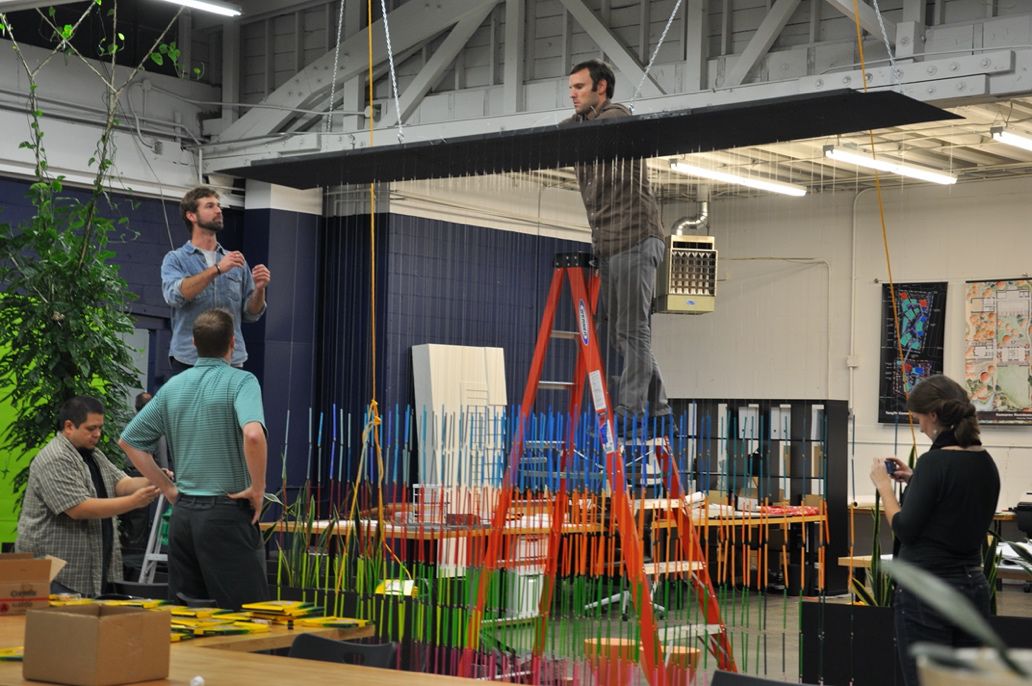
M:Digital technology has the potential to become a challenge. Today’s students are ultimately computer wizards. They can create beautiful images. Yet, they might fall in love with tools. We often caution them to remain focused on a creative process, clients, and users.
Graphics could become a make-belief. A part of the graphic process is essential to create a dream, a vision. Going to school is about dreaming. That's the beauty of it. There's no client, there's no budget, no schedule. Letting loose is super fun. Exercising that part of the brain is crucial.
The school is a perfect moment for exploration. Along the way, you also need to realize that the landscape architect has a responsibility beyond creating a pretty picture. That's what makes a design good – an understanding of peoples’ behavior, understanding the environment, understanding of nature, understanding of the surroundings and how they come together to create a special moment for each individual. Is the placemaking only for one person? Two people? Four people? 100? 300? 3000? Is it for today, for tomorrow, a hundred years from today?
That's the beauty of landscape architecture. We are privileged with opportunities to create timeless places for generations to enjoy; that my kids and my kids’ kids will be using and enjoying - public open spaces that will become civic elements, a part of the city, a part of the identity of the place, and a part of the identity of people.
C: Having the privilege to work in different scales locally and globally comes with the responsibility of understanding people, history, culture and impacts on our environment, especially in the times that we live now. Climate change is an important reality. As landscape architects, we must embrace leadership roles to learn from each other and be at the forefront of progress in our society.
04 / Design Practice
设计实践
█ 恭喜你们获得了ASLA专业奖,可以和我们分享一些你们对这个项目的见解吗?
Congratulations on the ASLA professional award. Can you share some insights about this project with us?
M:谢谢。Hassalo on Eighth 是一个的“环境友好”型项目的典型案例,它包含了我们刚才谈到的所有要素,同时也是基于多年友谊进行合作的案例的很好体现——这个项目中包含我们的客户AAT以及我们在GBD建筑事务所认识了24年的朋友。基本上景观行业中的人际关系以及对我们创造出具有持久价值的事物的信心是很重要的。我们的目标是为新的场所创造鲜明的身份和社区归属感。
这个项目位于一个70年代设计的城市区域,以商务塔楼和停车场为主。你的游览路径基本上是:把车停在地面停车场,然后上楼去办公室上班,下班后开车回郊区的家里。时至今日,这片区域已经被改造成了一个生态友好型社区。我们的客户、也是开发商——AAT和整个团队相信,在这里能够创造出一个可以长出新社区的“根系”。通过将三块以沥青铺地为主、车行优先的街区转换成以人为本、提倡骑行、充满生态栖息地的社区,打造成一个所有人都会产生家的归属感的新场所。这是一个非常令人期待的情景。
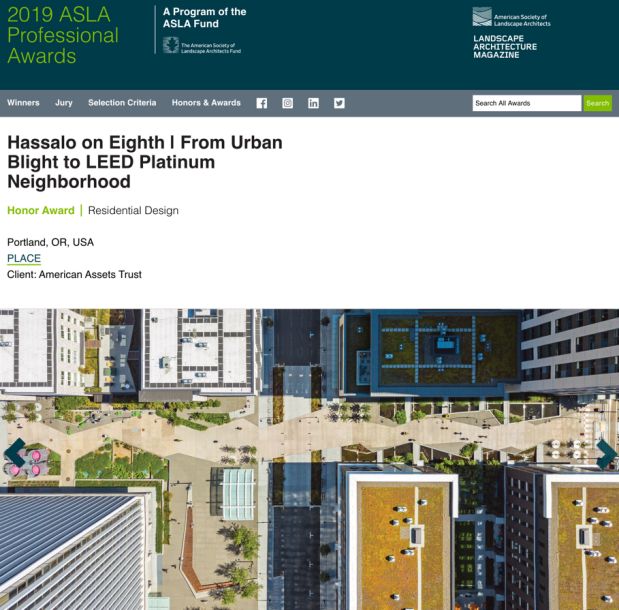
M:Thank you. Hassalo on Eighth is a great environmental project example; of all the things that we're talking about. It's a good example of a project created in partnership with our client American Assets Trust and passionate collaborators and friends at GBD Architects led by a Design Principal, Kyle Andersen, we've known for 24 years.
Basically, relationships in this business are very important along with the trust of creating something new of lasting value. The goals are to create a strong identity for a new place, to create a community.
That project is in an urban area designed in the 70s, with the concept of business towers and parking lots. You park a car on a surface lot, go up to an office and at the end of the workday, drive home to a suburb. Today, these parking lots have been transformed into a community and an eco-district neighborhood. Our client, the developer, The American Assets Trust, and the whole team believed in creating something that can serve as root to a new neighborhood. It's a really exciting vision to translate three blocks of asphalt and cars into human-centered neighborhoods vibrant with bicycles and habitats - a new place people call home.
█ 在参观Hassalo on Eighth的时候,我对之字形的模块和水街留下了很深的印象,它们和周围的环境非常不同。这个设计语言背后的灵感是什么呢?
When visiting Hassalo on Eighth, I was impressed by the zigzag pattern and water street. It's very different from the surrounding environment. What's the inspiration behind this design language?
M:我们想要创造一个具有鲜明特征和标志性又让人难忘的场所。水街是我们为这个新项目的主轴线所创造的元素,随着社区的不断发展,我们希望这个水街可以持续地将不同的街区联系在一起。同时,水街也是我们西太平洋多雨的环境和可持续发展的象征。我们认为,雨水和污水的处理在景观上应该是可见的,这是一种环境资产而不是见不得人的功能元素。因此水系统被强调并展现成这个项目的核心。当你在自然中漫步时,你可以体验到这个系统清洁和修复的能力。另外,这个系统还具有一种环境教育的目的。我们所运用的NORM(天然有机回收机器)背后的科学原理是,通过分散处理及再利用系统来将三座新建筑物中产生的废水100%处理掉,而非直接排入市政下水道。此外,种植池也可以作为生态栖息地和水源处理区。你需要全面地去看待它。
C:Hassalo on Eighth的精彩之处在于它是波特兰环境复兴使命的某种象征。作为个体,一个人可能很难改变世界,但如果我们可以与Hassalo on Eighth这样的先进社区合作,就可以通过集体的努力来实现更大的目标,这也是Hassalo on Eighth项目成功背后的思考。
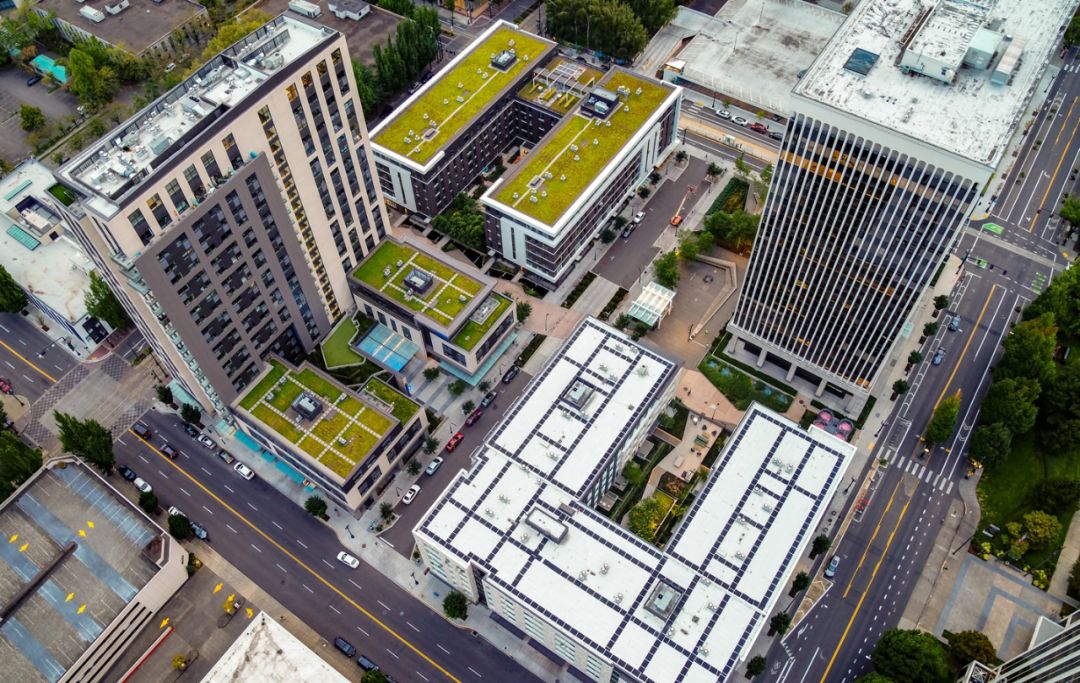
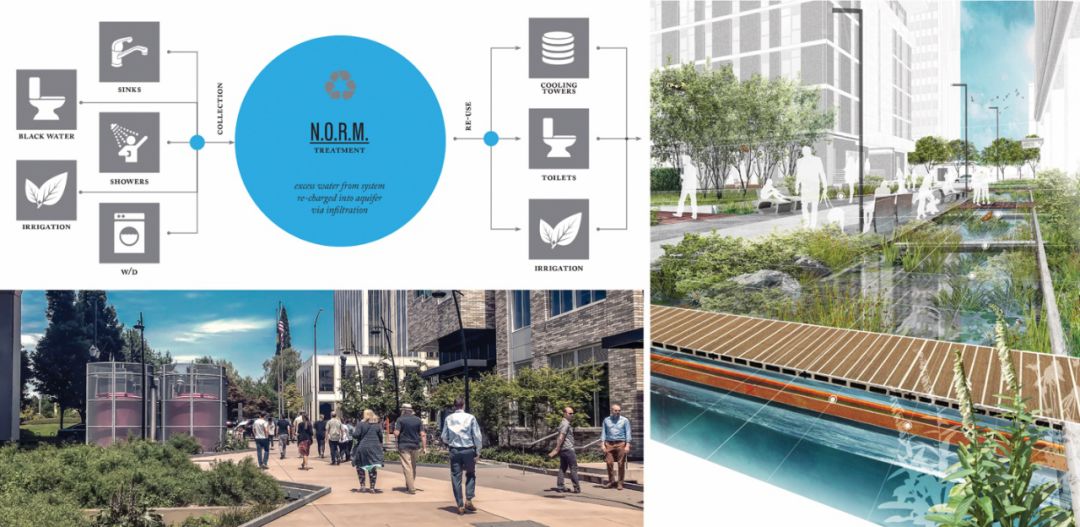
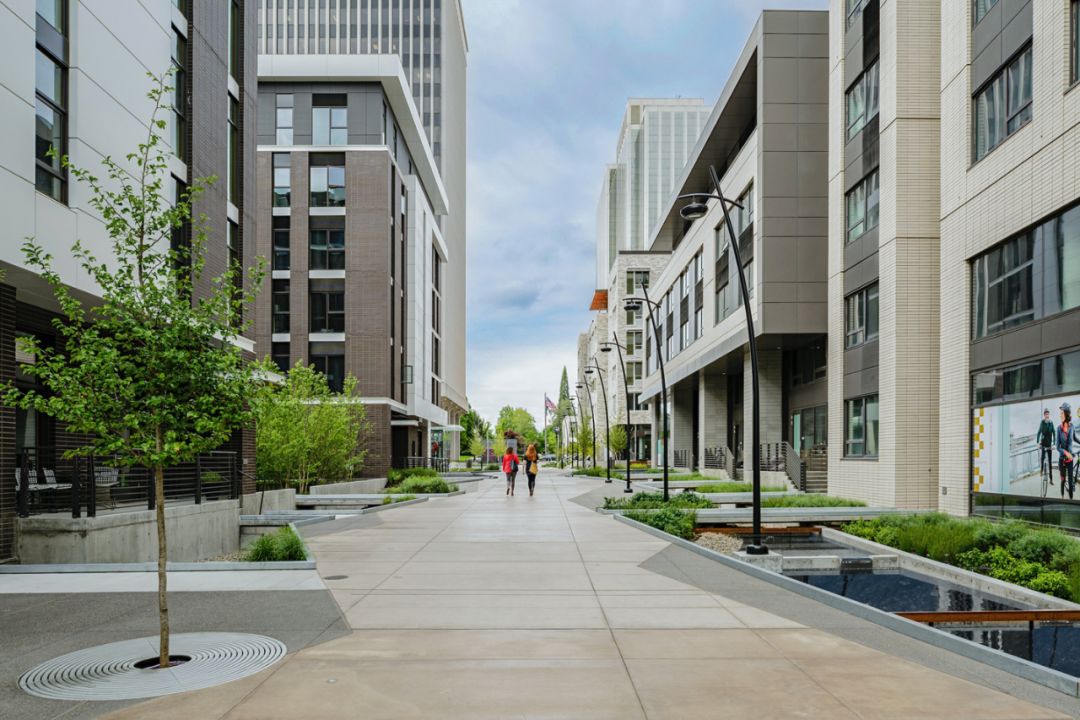
Hassalo on Eighth
M:We wanted to create an iconic and memorable place with a unique identity. Water street is an element that we created as the spine of the new development. As the neighborhood continues to develop, the aspiration is that the water street continues to tie one blocked to another.
The water street is symbolic of our Pacific Northwest rainy environment as well as sustainability. The treatment of the rainwater and the black water is visible in the landscape. It's an asset instead of a utilitarian element to hide. The water system is actually amplified and showcased as the epicenter of the development. As you walk within nature, you experience its power of cleansing and restoration. The system also has an environmental education purpose. The science behind the NORM (Natural Organic Recycling Machine) is to decentralize treatment and reuse system to divert 100% of the wastewater generated in the three new buildings away from the municipal sewer. The planting bed also serves as a habitat and a water treatment area. You just think about it 3-dimensionally.
C:What's awesome about Hassalo on Eighth is emblematic of Portland’s environmental agenda. As an individual, one might not be able to change the world; however joining with a progressive community like the Hassalo on Eighth, collective efforts are leveraged to accomplish more. That's the idea behind the success of the Hassalo on Eighth.
█ Mauricio您曾经在北京科技大学教书,可以分享一下你的教学体验吗?
As I know, Mauricio is also teaching at Beijing Technology University. Can you share with us the experience?
M:与世界各地的学生对话是一件很有趣的事情,因为每个不同的学术机构会打开你的眼界和思维。北京的教学形式很正式,是一种演讲的风格。于我而言,与学术界的合作是我们工作中的重要方面,也是一个分享想法、创意与见解,影响固有思考方式的机会。我们相信通过去到不同城市,不同地点可以让我们交换知识——我们在分享的同时也获得知识。因此我认为在北京科技大学教书是一个双向的过程。我们传达自己的想法,同时也接纳新的想法,在这种交流的过程中我们进行学习并且得到成长。
C:我们希望加强朋友和同行之间的联系。作为波特兰州立大学建筑学院的教授,我们也向包括北京在内的全球同事和朋友发出了邀请,邀请他们来波特兰访问我们。
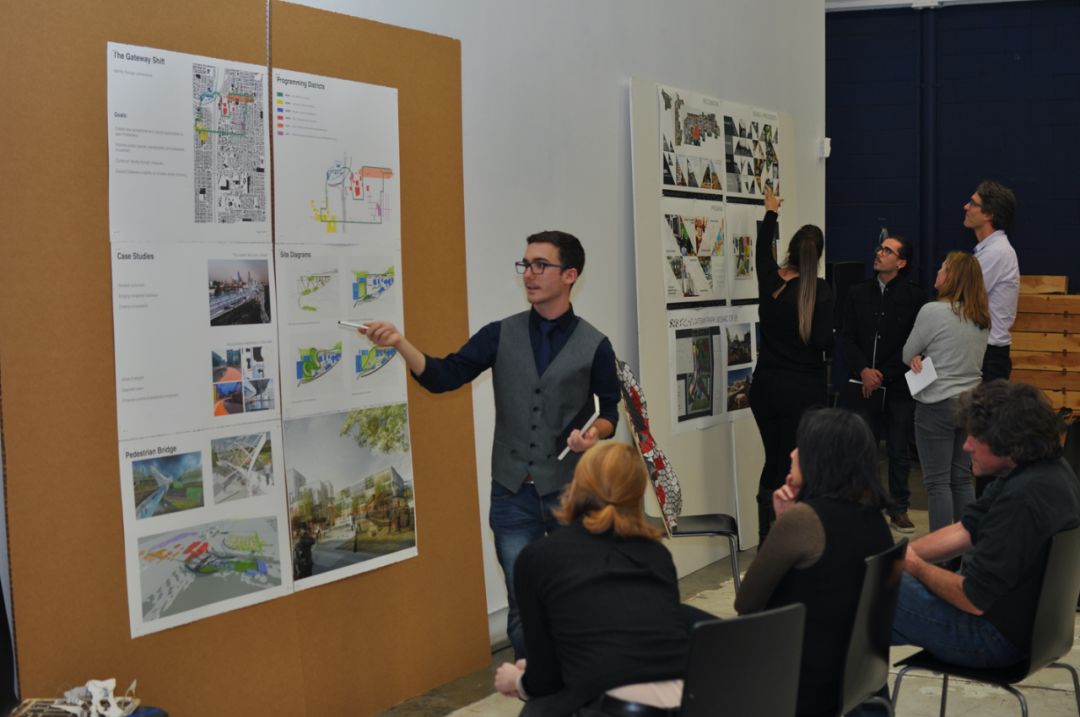
M:It is always interesting to engage students worldwide in a conversation. It opens your mind and your eyes because each academic institution is different. In Beijing, the format was somewhat formal, in a lecture style.
We consider engaging with academia an important aspect of our work. It is an opportunity to share thoughts, ideas, impressions, an opportunity to influence thinking. We believe that by going to different cities, different places, we exchange knowledge. We share and we acquire knowledge too. So being in Beijing at the prestigious university is a two-way street. We talk about ideas and we see and hear new ideas. The exchange process allows us to learn and grow.
C:As professors at the Portland State University School of Architecture we also extend invitations to our colleagues and friends worldwide including Beijing to visit us in Portland. We have a number of colleagues from China that have come to Portland State University and engaged local students. There is an ongoing exchange of ideas and we hope to continue building a network of friends and professional colleagues.
█ 你们有考虑过以设计课程的形式与海外学生和学校合作?
Have you considered working with international students in the studio format?
C:我们正在准备一个有实践内容的课程来让学生接触我们这个行业,在中国我们也有计划创立PLACE学院来吸引一小部分学生。我们的课程会侧重环境问题和可持续性,将波特兰环境管理和社区参与的价值体现进行传播和输出。我们最近几年在日本做项目时发现,我们能够使公众参与到公共领域的设计过程里。所以,我们打算在中国进行相同的实践,看公众能否引起共鸣。对于这样的探索我们相信会很有意思。
M:公众参与在太平洋西北地区特别是波特兰,是我们设计实践中占比很大的部分。这意味着很多设计和社区密切相关,在设计过程中,社区居民和他们提出的意见存在感很强,我们也积极接纳这个环节并使其成为我们设计的基础。然而我们发现,这在不同文化和地区并不是常态。在中国,人民习惯于由政府来主导公园设计,设计过程也反映出政府的制度。也许,如果社区居民能参与其中,人们会像在美国一样感受到更强烈的主人翁意识。
C:We are in the process of preparing a curriculum with hands-on experience exposing students to our practice. The idea of creating PLACE academy in China engaging a small group of students. The curriculum would focus on environmental issues and sustainability, exporting Portland values of environmental stewardship and community engagement. We found that, for example, in the last few years, while working in Japan, we were able to engage the public in a design process of the public realm. It would be interesting to explore a similar effort in China and see if it resonates with the public.
M:Community involvement in the Pacific Northwest, especially in Portland, is a big part of our practice, meaning that a lot of the design happens very much hand in hand with the community, with the residents and their voices and presence are strong. We embrace the process and make it fundamental to design. However, as we go to different cultures, different places, many times, that is not the norm. In China, people are used to that the government leads a park design. The design process is a reflection of the government system. Perhaps, if the communities were involved, people would feel a greater sense of ownership like in the US.
█ 我认为在中国,作为一个景观设计师去认真聆听来自社区居民的声音和政府的意见,并综合这两者的看法是很重要的。
I think it's especially important in China as a landscape architect to really listen to the community and also listen to the voice from the government and combine them together.
C:在中国,景观设计行业还很“年轻”,设计实践的过程还在不断发展。
M:世界范围内,年轻一代的设计师也在学习如何平衡众多的利益相关者,在中国也是如此。
C:The landscape architecture profession is very young in China. The design process is evolving.
M: Worldwide, the younger generations are also learning to balance the multitude of stakeholders and the same is true in China.
█ 在中国有很多机会,环境与景观市场也不错。两位也提到了PLACE在北京已成了事务所,可否介绍一下在中国的发展与实践?
We have many opportunities and the market is pretty good. You mentioned that there's a PLACE studio in Beijing. Do you have projects in China already?
M:中国的发展可以用“惊人”来描述,建设发展的数量和速度让人难以置信。能有参与这种有影响力的机会让人兴奋,如果真的可以参与构建和创造有益于中国社会的项目我们真的充满期待。
C:在如此宏大的城市规模和节奏下进行创新实践,并创造独特的景观环境在世界范围是前所未有的,而中国想要成为第一个试图在大规模发展的同时具有进步性以及竞争力的国家,这对包括PLACE在内的全球设计专业人士都是很有吸引力的。另外,PLACE与在中国建立同行间的联系十分感兴趣。从个人角度出发,我们期待与了解中国历史和文化的专业人员进行富有创意的交流,从而创造高品质的设计项目。我们目前正尝试与中国公司建立广泛合作,并在我们的合伙人周鹏的领导下开展项目,我们期待PLACE的创意美学与中国文化碰撞出新的火花,非常感谢!
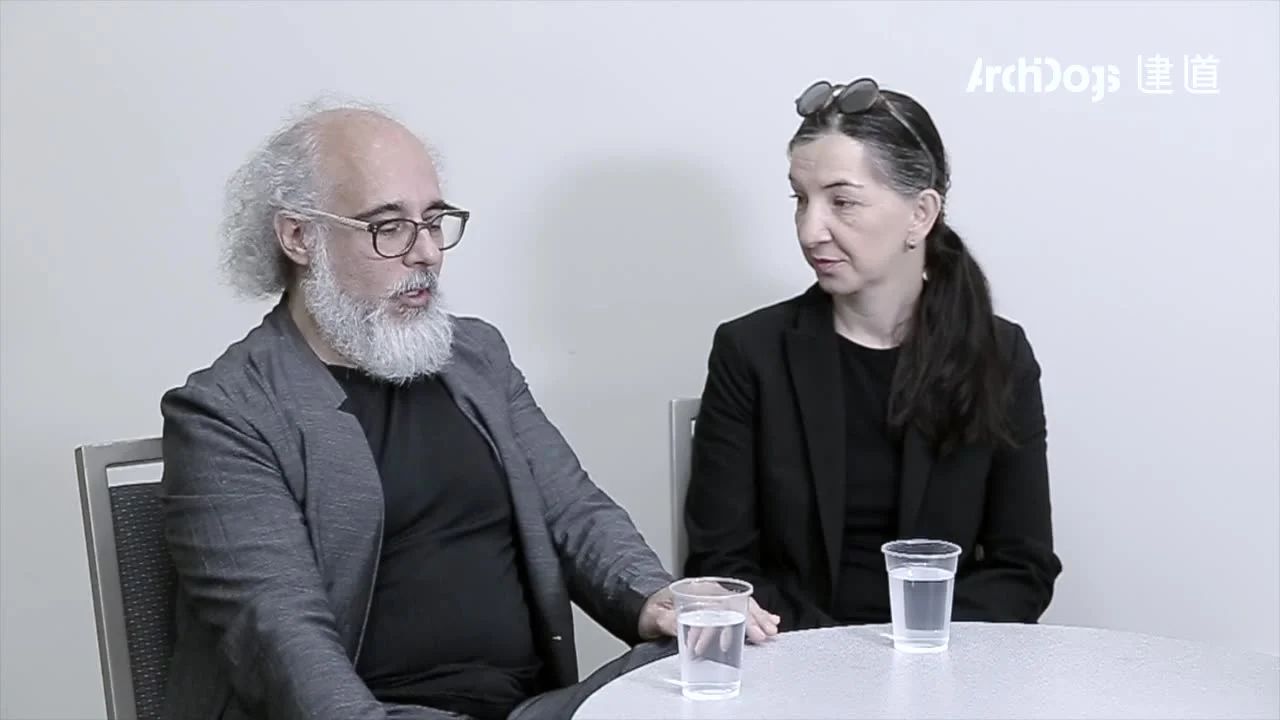
Interview with ArchiDogs at ASLA 2019 © ArchiDogs
M: The opportunities in China are absolutely amazing. The amount of development and the pace at which it occurs is just incredible. Opportunities to be a part of this influence is really exciting. You can be a part of constructing and creating a narrative that will benefit Chinese society. It is just really interesting.
C:Willingness to innovate and create unique environments at such a grand urban scale and pace hasn't been done before. China’s desire to be the first, wanting a large scale, to be progressive and provocative is attractive to design professionals worldwide including PLACE. To establish a network of professional colleagues in China is of strong interest to PLACE. In terms of our personal reward, we look forward to creative exchanges with professionals who intuitively understand history and culture to create a richer project. We are currently creating partnerships with local firms and are jointly pursuing projects with the leadership of our Principal, Peng Zhou.

PLACE 设计事务所
自然、城市、艺术
www.place.la
PLACE 是一家跨专业综合性的设计事务所,我们追求激发富有创意的生态景观,城市设计,建筑和公共艺术。我们全球化的业务布局始终致力于设计卓越和创新的生态实践项目,从以人为本的开放空间到大尺度的公共领域。我们的团队将尖端的理念和技术与环境设计实践相结合,创造出能够历久弥新的城市空间解决方案,最大限度地减少对环境的影响,并为后代提供可持续发展的规划与设计。与富有远见的客户合作,在开放和协作的氛围中反馈互动,是PLACE设计哲学的基础。PLACE品牌代表了一种创意性空间设计文化,在这种文化中,我们希望以包容开放的思考方式支撑长远稳定的合作伙伴关系。
访谈|Xiao Zhou, Sherry Li
翻译/文案|Xiao Zhou, Rugui Xie
校对|Sherry Li, Sara Li
摄影/摄像|Chao Sun(Chao Vision)
编辑|Winnie
审核编辑|Yibo
版权©建道筑格ArchiDogs,转载请联系media@archidogs.com
若有涉及任何版权问题,请联系media@archidogs.com,我们将尽快妥善处理。

